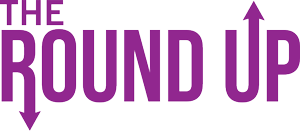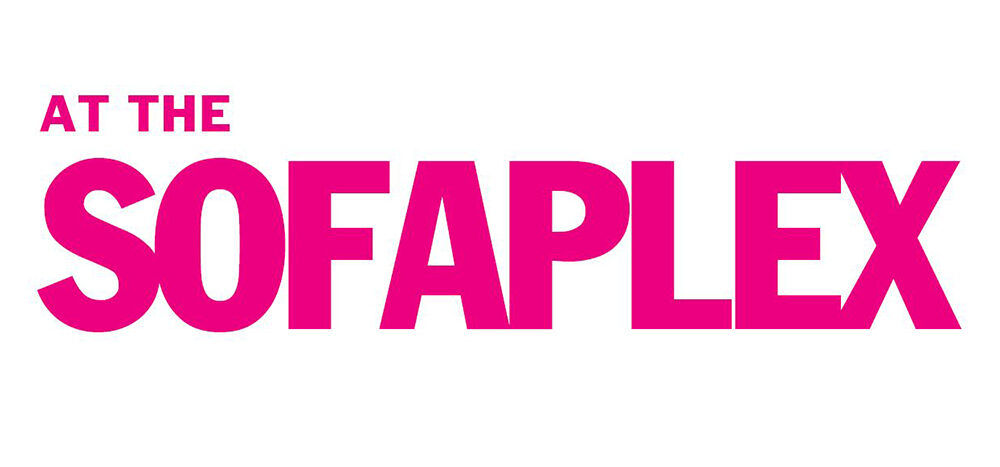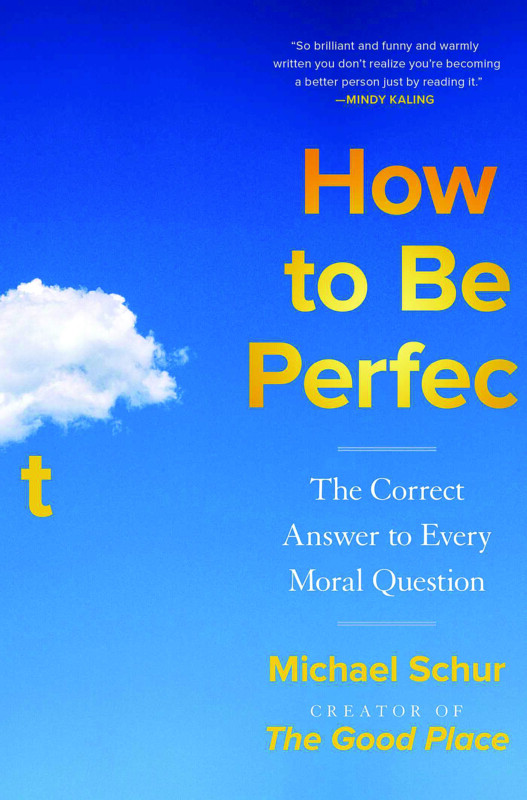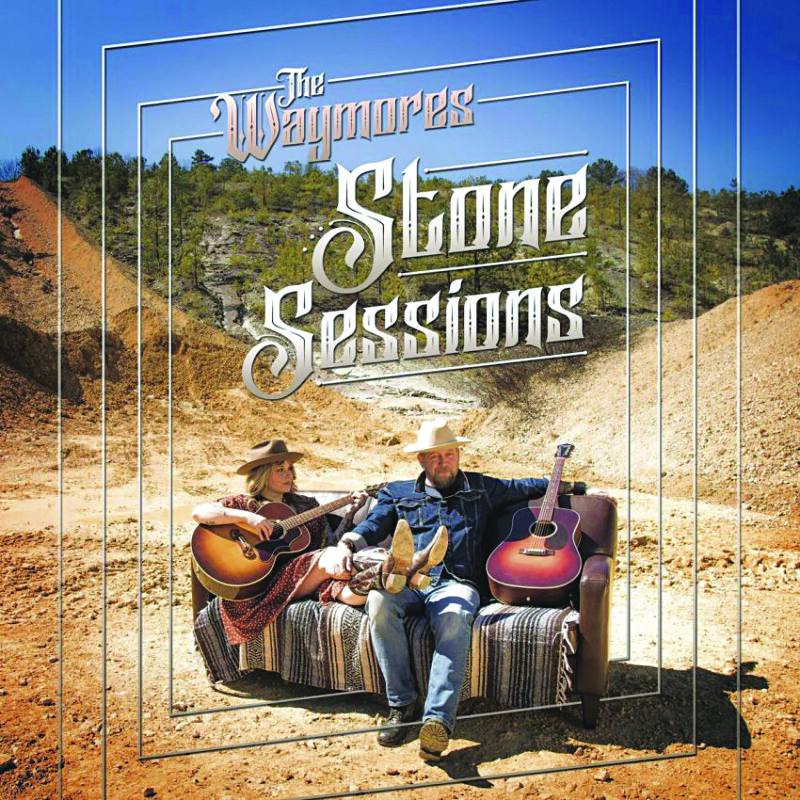How to Be Perfect, by Michael Schur (Simon & Schuster, 265 pages)
As television sitcoms go, The Good Place was rather remarkable. The NBC show, which premiered in 2016 and aired for four years, had all the typical goofiness of low-brow comedy but was based on high-brow ideas: What does it mean to be a good person? Why should we care? And, of all the prevailing philosophical schools of thought on the matter, which ones are true and most relevant today?
These are tough themes to take on in 30 minutes minus commercials, but Michael Schur succeeded in creating a star-making show that worked on both levels and managed to elevate relatively obscure philosophy books into the mainstream (most notably, retired Harvard professor T.M. Scanlon’s What We Owe To Each Other). Now Schur has written a book of his own, a summary of the ethical frameworks he studied when developing The Good Place. It is, in many ways, a sitcom of a book, as Schur applies a vaudevillian touch to topics rarely taken that lightly: among them, existentialism.
Parts have a slapstick quality that would quickly grow tiresome but for Schur’s true comic gifts and his willingness to question his own moral judgments, among them his struggle to reconcile his admiration of Woody Allen’s work with revelations of the filmmaker’s personal life.
The punchlines begin on the book’s cover, in which the title is hysterically imperfect; it leaves off the “t” in “perfect.” (The subtitle, “the correct answer to every moral question,” also reveals itself to be a joke, because Schur’s ultimate aim isn’t to answer all the big questions, but rather to give readers the framework for thinking about them, and in fact, to insist that we think about them.) They continue through the acknowledgments, in which Schur peppers his thanks to friends and colleagues with random facts. (Einstein used a $1,500 check as a bookmark, then lost the book; moose in the Western Yukon appear to have parties for each other.)
Along the way, Schur unpacks the thinking of the likes of Immanuel Kant, Bertrand Russell, Maimonides, Aristotle, William James, Jean-Paul Sartre, Jeremy Bentham and John Stuart Mill, all names with which any graduate of a U.S. high school should have at least a passing familiarity. He applies their ethical concepts to modern first-world dilemmas — Should I cheer for sports teams that have problematic names? Should I eat at Chick-Fil-A? Should I eat meat at all? — injecting personal anecdotes along the way, such as the angst he felt after spending $800 for a baseball bat autographed by Red Sox players as a Christmas gift for his son.
In another story, he reveals that his interest in ethics pre-dates The Good Place by at least a decade. In 2005, the year of Hurricane Katrina, Schur’s then fiance (now wife) had a fender bender that resulted in an $836 claim, despite the fact that the claimant’s bumper was barely scratched and the responding police officer said there was no damage. Schur was furious and offered to donate $836 to Katrina relief if the man would drop the claim and continue to live with the indignity of having a scratch on his bumper.
While the man was thinking it over, Schur took his outrage to the internet and raised $20,000 in pledges for Katrina relief if the bumper went unreplaced. “I had dreams of rescuing New Orleans all by myself, armed with nothing but a keyboard and a brilliant masterstroke of moral reasoning,” he wrote. “And then I started to feel sick.”
The “chirpings” of conscience began to nag at Schur and his fiance, and he started consulting ethics books and philosophy professors about why his actions felt wrong and what he should do. While he still believed that the other driver was wrong to insist on replacing a barely scratched bumper, he came to believe that he was also wrong to subject the man to public shaming even if an auxiliary outcome (Katrina relief) was good. This experience led Schur into the rabbit hole of ethics that resulted in The Good Place and ultimately this book.
In 2019, Schur was asked to write the introduction to the re-release of controversial ethicist Peter Singer’s book The Life You Can Save, and he wrote of it, “More important than what you feel when you read this book is what you will not feel: complacency. You will not feel like other people don’t matter.”
The same can be said of Schur’s book, which may seem superficial (2,500 years of complex moral philosophy condensed into 265 pages — with jokes!) but in fact achieves the author’s aim: to get us to think consciously about the mass of decisions that comprise our days, and to consider the ideas that could help us choose more wisely. Not because we think this might get us to a “good place” — this is a secular book, as was the show — but because, as Harvard’s Scanlon said, this is something that we owe each other.
B+
Book Notes
Some people choose books to read because they like the author; others, because they like the premise of the book. But have you ever chosen a book based on something the author said?
That happened to me this week when I read an interview with Brendan Slocumb, the author of the new novel The Violin Conspiracy (Anchor, 352 pages). I’d seen the book mentioned before, but it didn’t catch my attention until I read in Publishers Weekly that Slocumb said, “I wanted to pull back the curtain and let everybody know this is how the sausage is made. Classical music is a very cutthroat profession, though it’s especially tough for people of color.”
Classical music a “very cutthroat profession”? Who knew? Suddenly I was interested. Slocumb, who lives in D.C., is a music educator and professional violinist who also founded a nonprofit and plays in a rock band. Yet he found the time to write a novel. Definitely worth checking out.
Other new releases of interest:
Fans of Charles Dickens will be interested in The Turning Point (Deckle Edge, 368 pages), nonfiction by Robert Douglas Fairhurst that examines how the events of one year — 1851 — changed and shaped the beloved novelist’s career.
Funny Farm (St. Martin’s Press, 256 pages) is Laura Zeleski’s memoir of “my unexpected life with 600 rescue animals” and the story of how she, a graphic designer with government contracts, fulfilled her dying mother’s dream of running a rescue.
Daniel Pink sorted through more than 15,000 self-reported regrets of people around the world and found something resembling redemption, chronicled in The Power of Regret (Riverhead, 256 pages). If nothing else, reading the regrets of others might make you feel better about your own.
And finally, this is not a new release, but worth checking out given recent world events: Anne Applebaum’s Red Famine (Anchor, 466 pages), which examines another heartbreaking part of Ukraine’s history, when Josef Stalin intentionally starved more than 3 million people in the region through sinister agricultural policies.
Book Events
Author events
• AZAR NAFISI Author presents new book Read Dangerously: The Subversive Power of Literature in Troubled Times, in conversation with Jacki Lyden. Ticketed virtual event hosted by Gibson’s Bookstore in Concord. Sat., March 19, 7 p.m. Tickets cost $27 to $31 and include a copy of the book. Held via Zoom. Visit gibsonsbookstore.com or call 224-0562.
• HOWARD MANSFIELD Author presents new book Chasing Eden. Sat., March 19, 9:45 to 11:45 a.m. Peterborough Town Library, 2 Concord St., Peterborough. Visit monadnockwriters.org.
• EMMA LOEWE Author presents new book Return to Nature: The New Science of How Natural Landscapes Restore Us, in conversation with author Hannah Fries. Virtual event hosted by Gibson’s Bookstore in Concord. Wed., April 13, 7 p.m. Registration is required. Held via Zoom. Visit gibsonsbookstore.com or call 224-0562.
• BECKY SAKELLERIOU AND HENRY WALTERS Becky Sakelleriou presents new book The Possibility of Red. Henry Walters presents new book Field Guide A Tempo. Sat., April 16, 9:45 to 11:45 a.m. Peterborough Town Library, 2 Concord St., Peterborough. Visit monadnockwriters.org.
• ANNE HILLERMAN Author presents new book The Sacred Bridge. Virtual event hosted by Gibson’s Bookstore in Concord. Tues., April 19, 7 p.m. Held via Zoom. Registration is required. Visit gibsonsbookstore.com or call 224-0562.
Poetry
• REBECCA KAISER Poet presents Girl as Birch. Virtual event hosted by Gibson’s Bookstore in Concord. Mon., April 11, 7 p.m. Held via Zoom. Registration is required. Visit gibsonsbookstore.com or call 224-0562.
• DOWN CELLAR POETRY SALON Poetry event series presented by the Poetry Society of New Hampshire. Monthly. First Sunday. Visit poetrysocietynh.wordpress.com.
Book Clubs
• BOOKERY Online. Monthly. Third Thursday, 6 p.m. Bookstore based in Manchester. Visit bookerymht.com/online-book-club or call 836-6600.
• GIBSON’S BOOKSTORE Online, via Zoom. Monthly. First Monday, 5:30 p.m. Bookstore based in Concord. Visit gibsonsbookstore.com/gibsons-book-club-2020-2021 or call 224-0562.
• TO SHARE BREWING CO. 720 Union St., Manchester. Monthly. Second Thursday, 6 p.m. RSVP required. Visit tosharebrewing.com or call 836-6947.
• GOFFSTOWN PUBLIC LIBRARY 2 High St., Goffstown. Monthly. Third Wednesday, 1:30 p.m. Call 497-2102, email elizabethw@goffstownlibrary.com or visit goffstownlibrary.com
• BELKNAP MILL Online. Monthly. Last Wednesday, 6 p.m. Based in Laconia. Email bookclub@belknapmill.org.
• NASHUA PUBLIC LIBRARY Online. Monthly. Second Friday, 3 p.m. Call 589-4611, email information@nashualibrary.org or visit nashualibrary.org.






